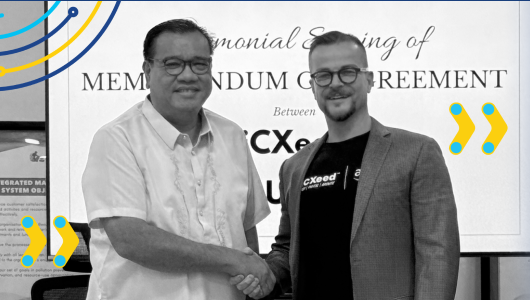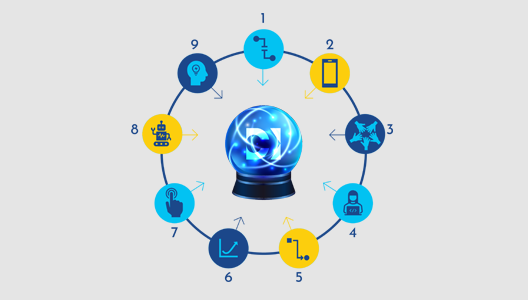
Ditching the commute helps you support your mental and physical health. The time savings can allow you to focus on priorities outside of work, like getting extra sleep in the morning, spending more time with family, getting in a workout, or eating a healthy breakfast.” –Flexjobs.com
Beyond Boundaries: Embracing Remote Work in the Philippines
Historically, the concept of work was bound to physical locations such as factories and offices. The routine of clocking in, working set hours, and clocking out was the norm for generations. However, the rise of the internet and collaborative tools have permanently blurred these physical boundaries. Over the past decade, technological leaps have made it possible for employees to work from almost anywhere, giving rise to digital nomads, co-working spaces, and the gig economy. Events like the 2020 global pandemic further accelerated this shift, making remote work not just an adaptation, but in many instances, a more productive and cost-effective model.
This new landscape isn’t solely about where we work but represents a change in how businesses perceive talent management, collaboration, and growth. Culture is a focus on delivering value and outcomes while fostering innovation, and maintaining an organizational culture, regardless of geographical constraints.
”As software developer of iCXeed, I’ve been very fortunate having the ability to work from anywhere with iCXeed. Working remote allows me to attend to my mother’s needs while still be able to perform my duties even before when I was still working with client. Remote work, I think, is really the trend now, especially for us IT people where the only weapon we need is a laptop with Wi-Fi. I really appreciate iCXeed for giving us this privilege of working not just remotely, but anywhere we want.” -Francis, iCXeed Employee
The Power of “Work from Anywhere
In recent years, the nature of productivity has been redefined. Once tethered to physical presence in an office, our understanding of what constitutes productive work has undergone a significant shift. Remote work, facilitated by advanced technological tools and platforms, offers a unique avenue for increased efficiency. Without the need for daily commutes, employees can reclaim valuable time, leading to a better work-life balance and, consequently, heightened focus and output. Moreover, the ability to create personal work environments can cater to individual productivity preferences, from choosing ambient noise levels to optimizing lighting.
One of the most lauded benefits of remote work is the unparalleled freedom and autonomy it bestows upon employees. No longer bound by the traditional 9-to-5 schedule, individuals can structure their workdays around peak productivity times, whether they are early birds or night owls. This freedom translates to a greater sense of control and ownership over one’s work, which can lead to higher job satisfaction and motivation. Furthermore, the autonomy to choose one’s work setting, be it a quiet home office or a bustling coffee shop, allows employees to select environments that best suit their working style and tasks. Pushing it further, work from anywhere can also accommodate travel preferences. It provides flexibility to work in another region while enjoying the regional activities in off hours.
The decentralized nature of remote work has also revolutionized talent acquisition. Companies are no longer limited to hiring talent within commuting distance of their physical offices. Instead, they can tap into a global pool of candidates, broadening their search and accessing a diverse array of skills and experiences. This expanded horizon not only offers businesses a competitive edge in securing top talent but also fosters a more inclusive and diverse workplace culture. By reaching beyond geographical boundaries, organizations can build teams that bring together varied perspectives, leading to richer discussions and more innovative solutions.

“People were just as productive as they were before, but they get to skip their lengthy commutes and spend more time with their families.” –Vox.com
The Philippine Context – Making the Case for Flexibility
Major cities in the Philippines, like Manila, Cebu, and Davao, are notorious for their traffic congestion. The daily commute for many Filipinos often involves navigating overcrowded public transportation systems, unpredictable weather conditions, and hours lost to traffic jams. This daily struggle not only takes a toll on an individual’s physical well-being and mental health but also represents countless lost productivity hours. For many, the commute has become an accepted, albeit frustrating, part of city life, but it’s a cost that businesses, in terms of time and resources, can no longer afford to overlook.
“I value the WFH arrangement because it allows me to maximize my time and energy. This arrangement has proven to be far more helpful for me than the effort I would have spent commuting from Bulacan to Metro Manila or preparing for work.” -Jercyllyn, iCXeed Employee
In this context, remote work emerges as a much-needed relief. By eliminating the need for daily commutes, employees can start their workdays rejuvenated, rather than exhausted from navigating the urban maze. The time saved translates to increased availability for work tasks, personal development, or much-needed relaxation. Beyond just the tangible benefits, remote work also alleviates the stress associated with braving the daily traffic grind, leading to improved mental well-being and job satisfaction.
The desire for work-life balance and flexibility resonates universally. However, in the Philippine context, these desires might be accentuated due to cultural and socio-economic factors. Filipinos place a strong emphasis on family and community bonds. The flexibility offered by remote work allows employees to spend more quality time with their families, attend community events, or care for elderly family members. Furthermore, given the challenges of urban living in the Philippines, such as traffic and occasional natural calamities, the option to work remotely is not just a perk but often a necessity. As such, Filipino employees might find the prospect of remote work more appealing and valuable than their counterparts in other regions.
“As an employee here; flexibility, Work-life balance, seamless management of professional and personal responsibilities, flexitime. Commute reduction – reduced commute hours, fares and fatigue. Adaptable access – no more limitations of office locations and fieldwork. Autonomy, less micromanagement gives more capability for innovation. Business Continuity, can continue work without significant interruptions in office or home” -Aaron, iCXeed Employee
The Rapidly Improving Internet Infrastructure
For remote work to be effective, a robust and reliable internet connection is paramount. In the Philippines, the landscape of internet connectivity has been undergoing a significant transformation. With the rise of improved fiber optic connectivity, there has been a significant leap in terms of bandwidth and stability within the archipelago. This has made real-time collaboration, video conferencing, and large data transfers more feasible and efficient, thereby directly enhancing the remote work experience. With more areas getting connected, even those in more remote regions can participate in the digital economy, breaking down previous geographical barriers to employment.
While traditional telcos have played their part in enhancing internet infrastructure, the entry of new players like Starlink, spearheaded by Elon Musk’s SpaceX, promises to redefine the boundaries of connectivity. Starlink’s satellite-based approach aims to provide high-speed internet access even in the most remote corners of the Philippines. Its potential to bridge the digital divide, especially in areas underserved by traditional ISPs, could be a significant boon for remote work and education in the country.
The role of established telecommunications companies cannot be understated in this digital shift. Large-scale telcos in the Philippines, such as Globe, PLDT, and Converge, have been instrumental in laying down the infrastructure required for the digital economy to thrive. By expanding their networks, offering competitive plans, and continuously upgrading their services, these companies facilitate the widespread adoption of remote work. Their initiatives, collaborations, and investments have not only improved individual access but have also empowered businesses to adopt digital tools and platforms confidently.

“Employees who work remotely show evidence of higher job satisfaction.” –Businessnewsdaily
Evolving Talent Management with Flexible Work Arrangements
The landscape of recruitment is no longer limited to geographical boundaries and traditional hiring methods. Companies today are leveraging flexible work arrangements to tap into broader talent pools. iCXeed exemplifies this shift, bringing an innovative and engaging approach to talent acquisition.
In the modern business landscape, innovation and flexibility go hand in hand, and companies like iCXeed are at the forefront of championing this synergy. An innovative work culture is cultivated through diverse perspectives, creative freedom, and an environment that encourages experimentation and continuous learning.
iCXeed embodies these principles by fostering a flexible work environment. When employees are empowered with the choice to tailor their work hours and settings, they often experience a profound sense of trust and ownership. This autonomy doesn’t just boost morale; it acts as a catalyst for out-of-the-box thinking, fostering a space where ideas flourish and transformative solutions emerge.
Diverse teams, a hallmark of iCXeed’s recruitment approach, further amplifies this innovative spirit. By drawing talent from varied backgrounds and geographical regions, iCXeed ensures a melting pot of ideas and viewpoints. This diversity enriches brainstorming sessions, problem-solving approaches, and ultimately, the products and services the company offers.
In essence, iCXeed’s commitment to flexibility and innovation not only makes it a desirable place to work but also positions it as a trailblazer in creating work cultures that are adaptable, inclusive, and poised for future challenges.
While flexibility offers numerous advantages, it also introduces unique challenges in terms of management and coordination. In a decentralized work setup, traditional supervision methods might fall short. Hence, the importance of proper management becomes paramount. Leaders need to adopt a results-oriented approach, focusing on deliverables rather than hours clocked. Effective communication tools, regular check-ins, and clear expectations are crucial. Moreover, fostering a culture of trust, mutual respect, and accountability ensures that even in the absence of physical oversight, teams remain cohesive, motivated, and productive.
Final Thoughts
As we reflect on the trajectory of the modern work landscape, it’s evident that the shifts we are witnessing are not mere trends but profound evolutions in our understanding of work, productivity, and collaboration. Companies like iCXeed are not only adapting but leading this change, proving that with the right approach and vision, businesses can thrive in this new era. The Philippines, with its unique challenges and opportunities, serves as a testament to the resilience and adaptability of its workforce and industries. From the rise of remote work to the breakthroughs in internet infrastructure and the innovative recruitment practices of forward-thinking companies, the nation is poised to harness the benefits of this global transformation. As we move forward, the emphasis on value, innovation, and flexibility will define not just how we work, but also how we grow, collaborate, and achieve our collective aspirations in a rapidly evolving world.
Are you seeking fresh perspectives and alternative approaches to customer experience? We believe that traditional BPO partners may not be entirely focused on the total customer experience, which should encompass far more than the common performance indicators of CSAT, AHT, FCR, and NPS. It’s time to think like a business process innovator and view your contact centre with a digital-first customer experience lens. Learn more here.






